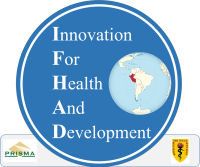Using Simple Measurements to Predict Prognosis
Methods that can predict success at an early stage of treatment are incredibly valuable, as changes can be rapidly implemented to reverse negative prognoses. We recruited and followed TB patients, and assessed the correlation of various simple measurements in outcome. Traditional microbiological evaluations were not found to be effective until two months of treatment had been completed.
After only one month of standard treatment, the following assessments were more frequent in patients who subsequently died/failed therapy:
1) fever,
2) feeling unwell,
3) number of symptoms,
4) abnormal chest examination and
5) weight.
These simple predictors can be easily implemented; combining them into a single clinical score can even more significantly improve the prediction and predictive speed of TB prognosis following the start of treatment. The more rapid and inexpensive ability of these assessments to predict prognosis have the potential to improve overall survival and to decrease transmission of TB disease.
